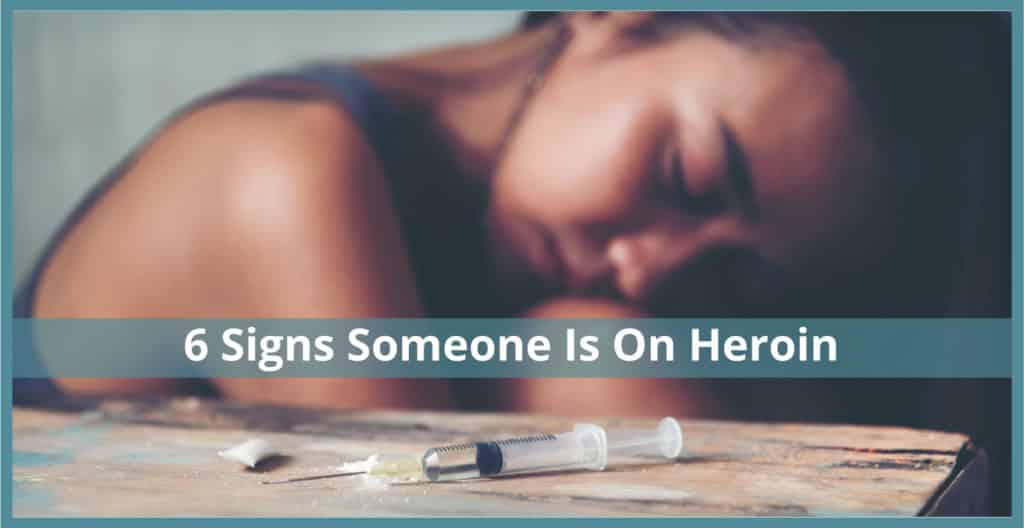In 2017, heroin overdoses took more than 15,000 lives in the United States alone. That’s five deaths for every 100,000 people, according to the Centers for Disease Control and Prevention (CDC). The battle to control the escalation of heroin use starts at home, but how can know if someone you love is on heroin? Take a look at six telltale signs:
1. They Look Intoxicated
Like all opioids, the dependence of heroin creates a euphoric effect that makes it very addictive. The first step is to look for signs of heroin intoxication. Heroin intoxication indicates the drug is still in their system, and symptoms can include:
- pinpoint pupils
- runny nose
- flushed skin
- sluggish movement
- on the nod (a term that means in and out of consciousness)
- dry mouth
- difficulty focusing and functioning
With heroin intoxication, it’s essential to watch for overdose. Signs of overdose include depressed breathing, blue lips or nails, disorientation, and unconsciousness.
2. Behavioral Changes
A shift in your loved one’s behavior may occur with heroin use. For example, they may stop eating or sleeping regularly. Other behavioral signs may include:
- changes in their social practices, like no longer hanging out with their usual crowd or bringing around people you don’t know
- when asked to go out with friends, they might make an excuse
- they may be reluctant or angry if asked to spend time with family
- they may have a new need for privacy, demanding you leave them alone or stop bugging them about where they go or how they spend their time
- they may deny drug use and even become agitated if you ask
Wide mood swings may become standard. You may see them go from deep depression to unexplainable joy in a short time. They may also show a lack of interest in things that once mattered, too, like their favorite hobbies or activities.
3. Psychological Changes
The continued use of heroin takes a toll on mental health. Over time, heroin use changes the structure of the brain and can create an imbalance. They may struggle to make decisions, including seemingly insignificant ones like deciding what to order off a menu. You may also notice they’re having problems keeping up with work or school or that grades start to drop. They might show signs of stress and an overall lack of focus.
4. Withdrawal Symptoms
Someone using heroin will sometimes do just enough to keep from feeling the symptoms of withdrawal. If they stop using heroin, you may notice a few signs of withdrawal:
- moodiness
- anxiety
- yawning
- restlessness
- nausea
- vomiting
- body aches
- chills
- diarrhea
- insomnia
- irritability
- runny nose
5. Legal And Financial Problems
Someone using heroin might have unexpected legal issues, but they may not relate to drug use. They can be traffic tickets, DWI, or even behavioral charges like fighting or trespassing. They could miss child-support payments or court dates. Their ongoing heroin use may also lead to financial problems. They may neglect paying bills on time or frequently ask about borrowing money.
6. You Find Paraphernalia
There are many ways to take heroin, but it’s typically injected, snorted, or smoked. You might find baggies the drug comes in or other kinds of paraphernalia such as glass or metal pipes, dirty aluminum foil, or spoons with burn marks. If you think someone you love is using heroin or have questions about its use, give us a call. Our specialists can talk with you and help you determine if your loved needs treatment. To learn more about our facility, contact The Bluffs today.








